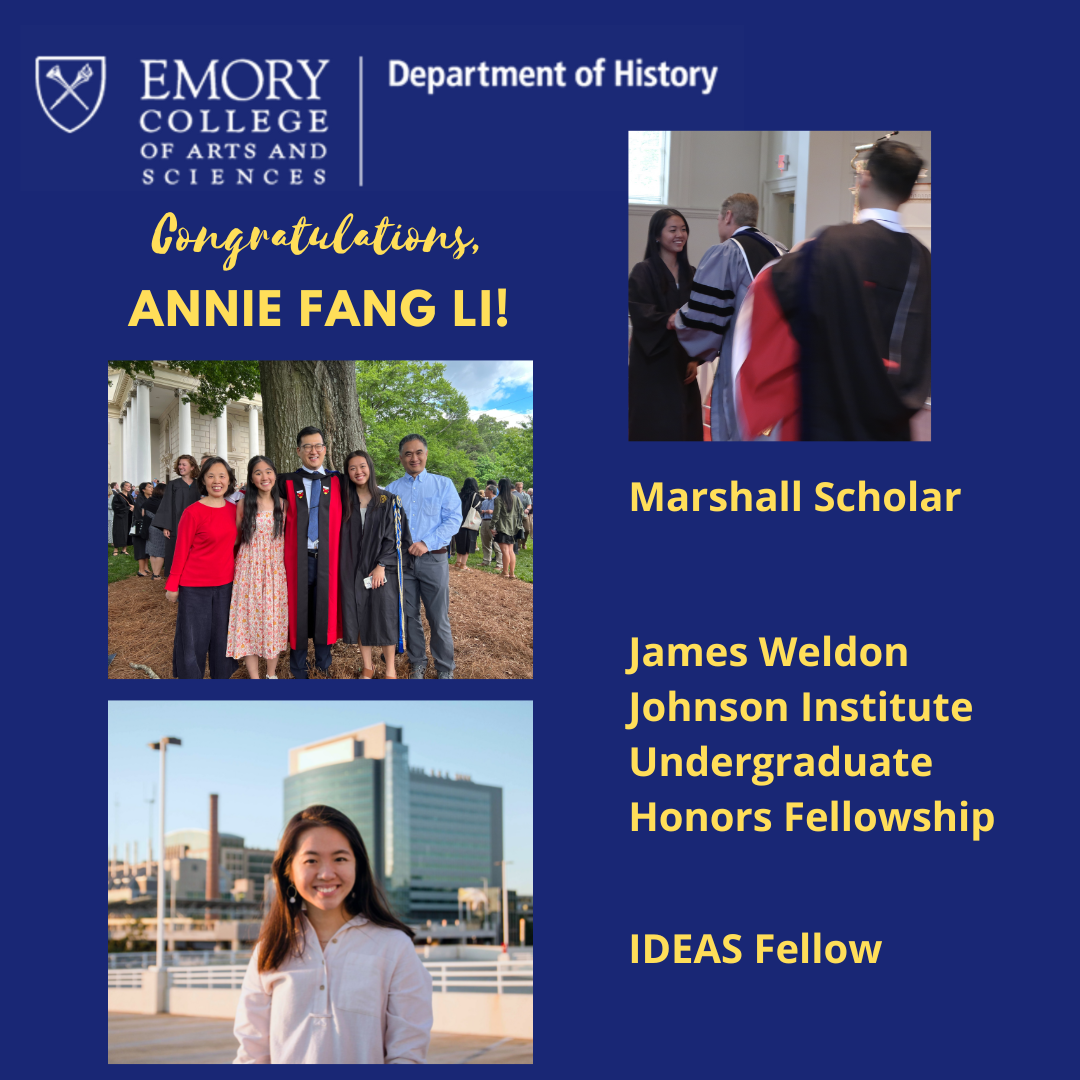In the fall of 2022 the Emory History Department welcomes Dr. Laura Nenzi, a social historian of early modern Japan, as Acting Full Professor. In the latest installment of our Welcoming New Faculty series, Dr. Nenzi offers a glimpse into her research and teaching along with what drew her to Emory.

Tell us about the focus of your research and principal current project.
I am a social historian of early modern Japan. I enjoy writing history in different scales, from the very small (the life of an ordinary person) to the large (trends spanning two and a half centuries). I have written about travel culture, commercial publishers, space, identity, and about political activism in the nineteenth century. I have published two books, both of which put women at the center of historical investigation.
My current project is a history of the night in early modern Japan (1600-1868). It started out as an antiquarian curiosity: what happened in Edo (Tokyo) after dark? Through the mid-nineteenth century Edo, the largest city in the world, home to one million people, lacked one of the key features of the modern night: public illumination. At the same time, other elements associated with the modern night—regulation, consumption, imagination, and sociability—were firmly in place. This is where my antiquarian curiosity led to a legitimate historical inquiry, for Japan’s early modern night muddles the conventional divide between the pre-industrial and the modern eras and compels us to revisit assumptions about Japan’s modernization, technology-driven histories, and ultimately about narratives of the global nighttime.
Was there a particularly memorable moment from archival or field research that has had a lasting impact on your work or career?
Any historian will tell you that the serendipitous discoveries in the archives and the small things that escalate into something big are among the best parts of our job. For me, this happened as I was thinking about the subject of my second book, Kurosawa Tokiko, a fortuneteller, poet, and rural teacher who became a political activist in the 1850s. Her actions were ultimately inconsequential, and so she is not (or was not, I should say) a well-known figure in the history of late Tokugawa Japan. My first attempt to retrieve one of her manuscript diaries ended in failure, because, I found out, it had been destroyed during the Tokyo air raids of 1945. A librarian suggested I reach out to her descendants and found a street address where they could be reached. No email. So, I wrote and mailed a letter. This led to an invitation to visit her native home, which local activists were trying to preserve, and the local archives. I showed up expecting three or four documents, and would have been happy with that. They started bringing out the envelopes. One, two, three, four, five, six, seven… at fourteen I stopped counting, they kept going. I knew right there and then that I had a book to write. To this day I remain friends with the people who helped me rescue her from oblivion. After the book came out, they used it as evidence that there is interest in her story outside the confines of her town and that her home should indeed be preserved. A win-win for everyone.
What sort of courses – undergraduate or graduate – are you most excited to offer at Emory?
There are Japanese History undergraduate courses in the catalog that I am inheriting and that I am very happy to teach, but I am most excited to introduce two new ones that have been among my most popular undergraduate classes at my previous institution: The History of Tokyo and The Samurai: Fact, Fiction, Fantasy. The department has a commitment to transnational, comparative, and global themes, so I will also be offering graduate and undergraduate classes that look at various interactions between Japan and the outside world between the sixteenth and the nineteenth centuries. Some of these I have done before, and some are new and based on very recent, very exciting scholarship that I cannot wait to share with my students.
What drew you to Emory?
The departmental and institutional commitment to and support for academic excellence. The freedom to discuss issues that, more and more, are being censored elsewhere as “divisive.” My colleagues in the department, some of whom have written books and articles I have been using for years in my classes, and my colleagues in the department of Russian and East Asian Languages and Cultures. The possibility to train my own graduate students. Also, as someone who taught professionalization seminars for many years, I am in awe of Emory’s TATTO program and excited to be part of it. Emory’s overall commitment to diversity and inclusion. The diverse student body. Atlanta. So, pretty much everything.
